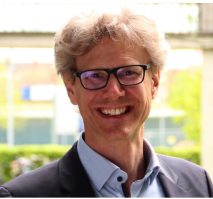
Date:
Location:
Speaker:
Abstract: This talks presents recent software developments in the Systems Control and Optimization Laboratory of the University of Freiburg, and their application to optimization-based model predictive control (MPC) of renewable energy systems. Focus will be on three applications:
(1) Control of a solar-driven climate system in a university building. The system consists of two solar thermal collector fields, an adsorption cooling machine (ACM) with different operation modes, a stratified hot water storage with multiple inlets and outlets as well as a cold water storage. The advantages of mixed-integer nonlinear MPC for this application are highlighted.
(2) District heating networks with decentralized heat production. These systems are ideally suited to include a high share of renewable energy sources for heat production in urban areas with limited space. A new concept is a prosumer-based district heating network in which some or even all buildings are equipped with decentralized building-level heat storages and heat generation plants. To exploit the full potential of the interconnected heating network, buildings with surplus heat are intended to transfer heat to buildings with heating demands to prevent the activation of the central heating plant. A simulation case study concerning a residential heating network with building-level solar thermal collectors and storage tanks is carried out. The optimized operation is compared to the real operation obtained from one month of measurements, and the results show that the optimized strategy with bidirectional heat transfer leads to a reduction of almost 75% of the required thermal energy from the central heat provider.
(3) Airborne wind energy farms. Airborne Wind Energy (AWE) is an emerging renewable energy technology that uses tethered flying devices to access wind energy at higher altitudes where the wind is more consistent. The AWE farms proposed and investigated here consist of many independently operated tethered aircraft that fly in an oblique planar area above the ground, avoiding wake interaction between the individual devices. Compared to conventional wind farms, which deliver about 2-3 MW/km^2 as average power per ground area, the proposed AWE farms would be able to harvest more than 6 MW/km^2, more than doubling the ground area efficiency. They would achieve this with much lower material investment. We also report on first steps towards real-world deployment of AWE systems.
Bio: Moritz Diehl was born in Hamburg, Germany, in 1971. He studied physics and mathematics at Heidelberg and Cambridge University from 1993-1999, and received his Ph.D. degree from Heidelberg University in 2001, at the Interdisciplinary Center for Scientific Computing. From 2006 to2013, he was a professor with the Department of Electrical Engineering, KU Leuven University Belgium, and served as the Principal Investigator of KU Leuven's Optimization in Engineering Center OPTEC. In 2013 he moved to the University of Freiburg, Germany, where he heads the Systems Control and Optimization Laboratory, in the Department of Microsystems Engineering (IMTEK), and is also affiliated to the Department of Mathematics. His research interests are in optimization and control, spanning from numerical method development to applications in different branches of engineering, with a focus on embedded and on renewable energy systems.



